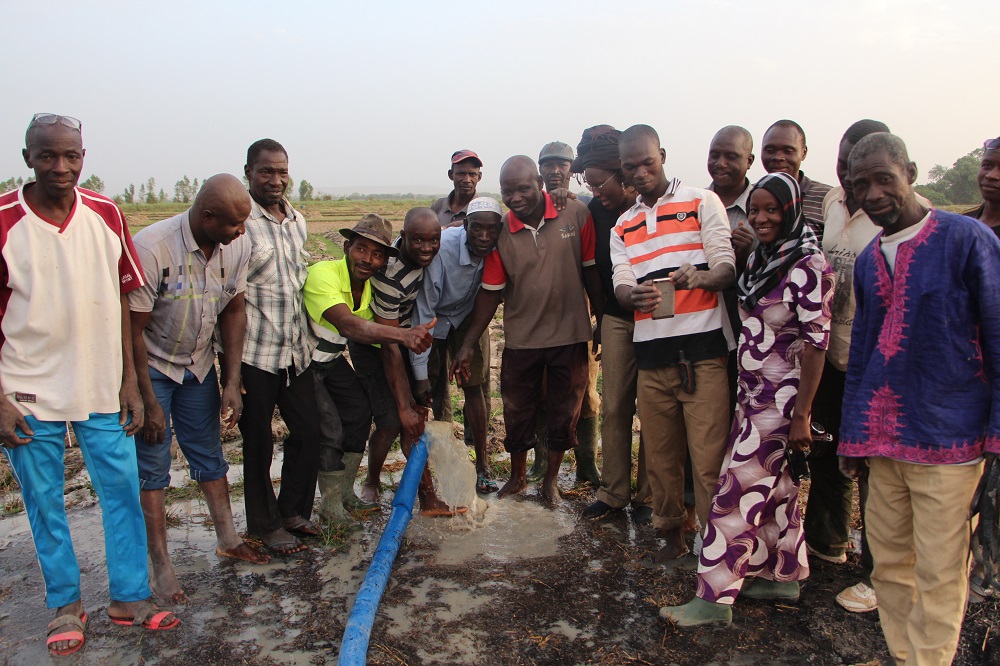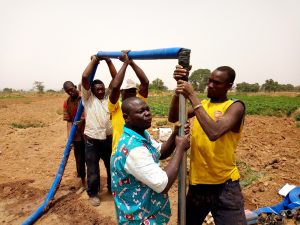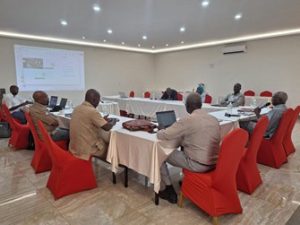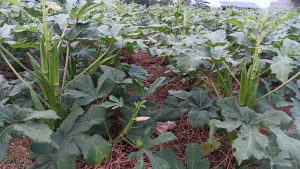TAAT’s new irrigation technologies intensify rice production in Mali and Burkina Faso

By Matilda Dennis Quaicoe
Rice Farmers in the lowland areas around Bobo Dioulasso in Burkina Faso and Sikasso in Mali can now extend the agricultural season to the dry season thanks to technologies brought by the Water Enabler Compact of the Technologies for African Agricultural Transformation (TAAT) program.
Rice farmers can now tap from shallow ground water aquifers using the tube wells and motor pumps brought by the compact.
Efficient conveyance systems of PVC pipes and valves are also demonstrated as a technology to increase profitability by reducing unnecessary water spills and associated expenditures for fuel.
The set of technologies has already yielded positive impacts in Nigeria, where it is being demonstrated for wheat production systems.
Farmers on both sides of the border are thrilled about the new technologies because of its prospects for income generation and reduction of labour.
Traditionally, some farmers irrigate vegetables and other crops by excavation wells by hand and lift water using buckets. Participating farmers plan to expand their irrigated land during the dry season with rice and other crops that are suitable in the lowland environment.
Like most of his colleagues, Ibrahim Issah, a rice farmer from Bobo Dioulasso is hopeful about the

positive outcomes of the newly introduced tubewells. “There can be no farmer without water and without the introduction of modern irrigation technologies, farmers cannot properly harness available groundwater to expand production. We are very grateful to the new initiative”.
In Burkina Faso, International Water Management Institute (IWMI) which leads the Water Enabler Compact of TAAT partners with the Institut de l’Environnement et Recherches Agricoles (INERA), and the compact activities are coordinated by Dr. Aïssata Delphine Nati to scale out irrigation and water management technologies for rice and sorghum.
Mali’s partnership with TAAT-WEC is led by Dr. Kalifa Traoré from Institut d’Economie Rurale (IER). Both INERA and IER have a national mandate to promote irrigation development in their respective countries, and maintain strong links with water user and farmer associations, extension services and the private sector.
TAAT Water Enabler Compact engages the Rice Value Chain compact that is led by the Africa Rice Center to assure farmer further boost their productivity by using modern rice varieties and good agricultural practices.
Technologies for African Agricultural Transformation (TAAT) is a program initiated by the African Development Bank (AfDB) as part of its Feed Africa Initiative.
The main objective of the program is to improve the business of agriculture across Africa by raising agricultural productivity, mitigating risks and promoting diversification and processing in 18 agricultural value chains within eight Priority Intervention Areas (PIA).
The program is implemented by CGIAR Centers, specialized technical centers, national agricultural research and extension systems, and private sector partners.
The TAAT program increases agricultural productivity through the deployment of proven and high-performance agricultural technologies at scale along selected value chains. TAAT operates as a network of interacting Compacts with nine devoted to specific commodity value chains, and six others serving as Enablers that provide needed specialist services like the water enabler compact led by IWMI.
Matilda Dennis Quaicoe, a Communications Officer at IWMI writes from Ghana
Recent Stories
Related Stories
- Tanzania: TAAT and partners Showcase Scalable Solutions for Africa’s Grain Challenges
- TAAT, AfricaRice and Partners eye Rice Value Chain Revolution across Africa
- KENYA: TAAT and Partners convene stakeholders for a seed roadmap
- COTE D’IVOIRE: TAAT and Partners convene stakeholders for a seed roadmap
- GHANA: TAAT Engages Stakeholders on Innovation Platform Model





